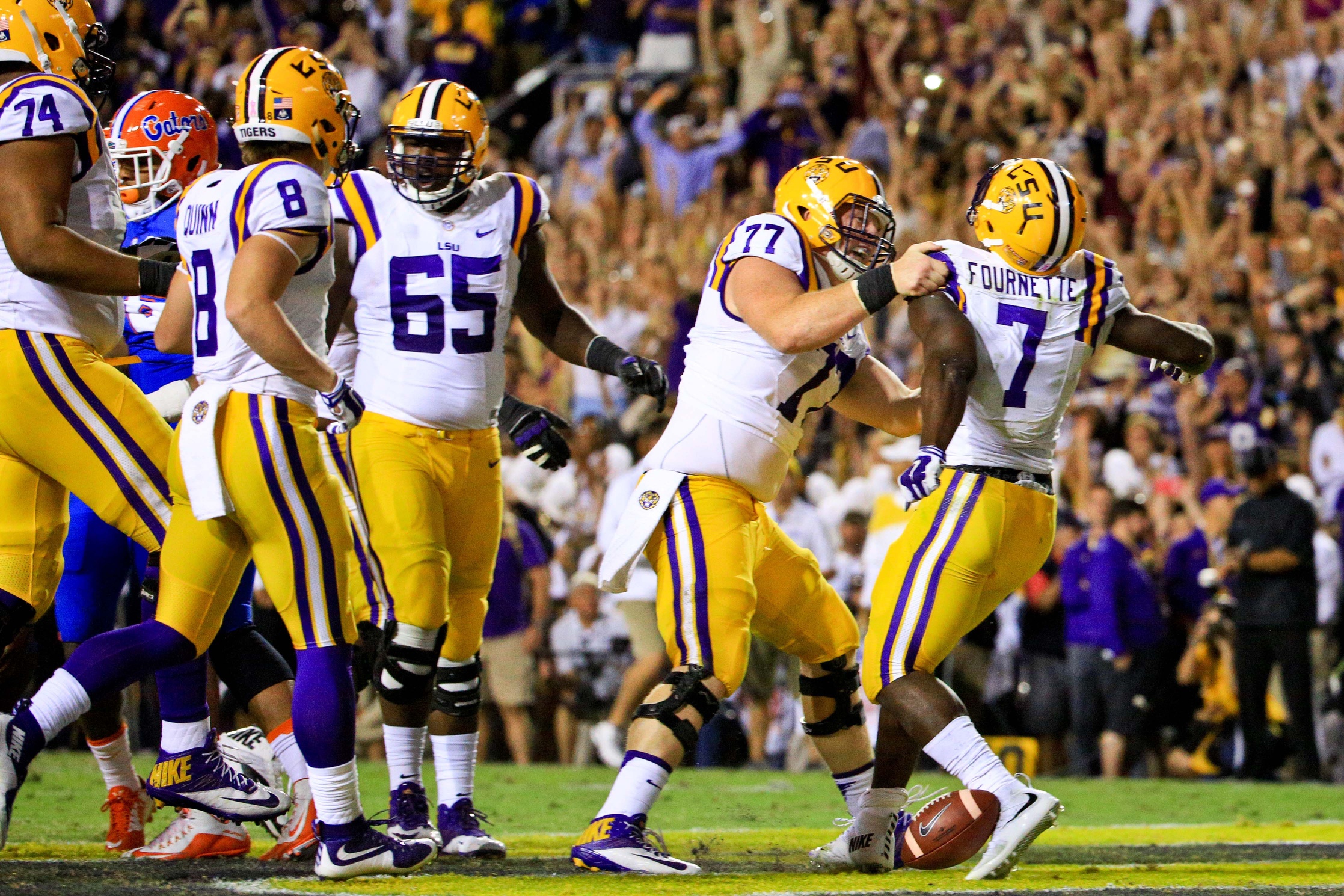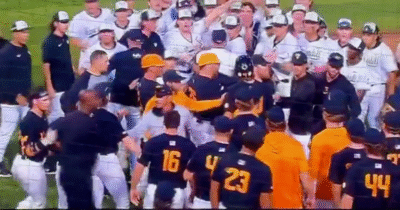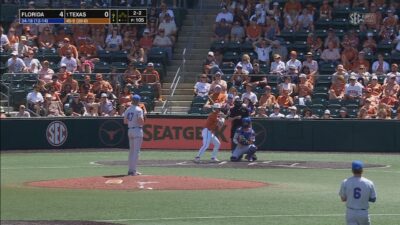Ad Disclosure

There’s no way to sugarcoat it. LSU delivered its worst performance of the season in several key areas during last week’s 30-16 loss to Alabama.
Leonard Fournette was held to a season-low 31 yards on 19 carries, part of LSU’s 54 rushing yards on 26 attempts.
Brandon Harris completed just 6 of 19 passes for 128 yards, a touchdown and an interception.
In addition to struggling while run blocking for Fournette and his teammates, the offensive line allowed 2 sacks.
Harris’ outing was disappointing but not surprising. The sophomore, who did not attempt a pass in last year’s 20-13 overtime loss to the Crimson Tide, was making his first start in Tuscaloosa, where many inexperienced QBs have been shut down, especially during the Nick Saban era.
Fournette’s lack of production was stunning, but it shouldn’t have been totally unexpected since he was competing against the top rushing defense in the SEC and one of the best units in the country.
But how LSU’s offensive line was pushed around was the most eye-opening, and concerning, takeaway from last Saturday’s game. And it’s the most important area the Tigers need to fix heading into this weekend’s home game against Arkansas.
“As an O-line, we’ve got to play better as a group,” center Ethan Pocic said. “I feel like, me included, we’d have a good play and maybe one person, (there would be) one weak link, in the run and pass. “They were a great front. They played their (butt) off, shut down our run game. They played a great game.”
The Crimson Tide played so well that its defenders apparently made contact with Fournette behind the line of scrimmage on 13 of his 19 runs, according to a replay of the game. But all the Tigers can do is improve upon that aspect while focusing on an Arkansas team that has won three straight, including last week’s 53-52 overtime victory at Ole Miss.
The Razorbacks’ front four — and front seven for that matter — is not nearly as good as Alabama’s. But the Hogs’ run defense isn’t bad. It’s allowing 129.4 rushing yards per game to rank 7th in the SEC. So improvement from Fournette and his linemen can be expected but not taken for granted. After taking on Arkansas, LSU caps its regular season at Ole Miss (6th in the conference in rush defense) and at home against Texas A&M, whose first-year defensive coordinator clearly knows the Tigers’ tendencies after having spent the previous six seasons as Les Miles’ defensive coordinator.
Despite LSU’s daunting November, Miles expects Fournette and the rest of his team to bounce back against Arkansas.
“I think Leonard Fournette is a guy that understands football,” Miles said on Wednesday. “He recognizes there’s another Saturday, there’s another Saturday, and the opportunity to show your body of work is something that is on display routinely through these falls. I don’t think he’s put much into the last game.”
And hopefully for LSU’s sake, neither has Harris. One promising thing for the Tigers, at least this week, is that the sophomore will be going up against the league’s worst passing defense. The Razorbacks are allowing a whopping 283.6 yards through the air per game. On top of that, with just 8 sacks in their first nine games, the Hogs have the worst pass rush in the SEC.
But based on Harris’ shaky outing last week, he undoubtedly still has work to do. For now, it won’t be on the deep ball as Harris averaged 21.3 yards on 6 completions last week. It’s evident that he and offensive coordinator Cam Cameron need to improve LSU’s short passing game.
The bottom line is, whether the Tigers can still win the SEC West and/or qualify for the College Football Playoff depends upon how well its offensive line bounces back from last week’s debacle. Better run blocking will create the holes Fournette had seen during the first seven games of the season, when he emerged as the nation’s top Heisman candidate.
Better protection for Harris will help him build on the progress he had shown entering the Alabama game. And most importantly, knowing that last week’s loss hasn’t completely killed their season should be more than enough of an incentive and impetus to return to form.
Stan Chrapowicki is a contributing writer for Saturday Down South. He covers SEC football, Alabama and Auburn.







